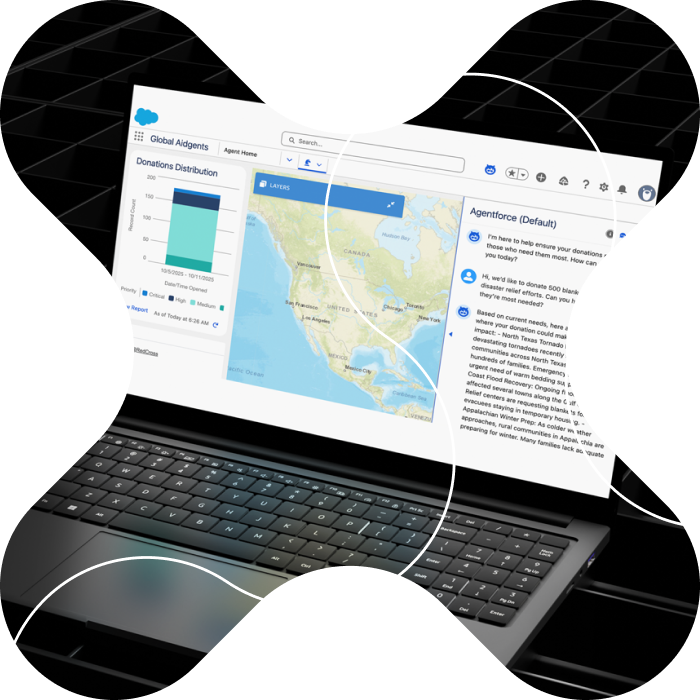Delegates in C#: A Practical Guide
Delegates are a powerful feature in C#—one that helps you write simpler, more concise code. But they can also be a bit tricky to grasp. Whether it’s the syntax, lambda expressions, or the idea of treating methods as variables, you’re not alone if you’ve ever struggled to understand how delegates work—or why they matter.
That’s exactly why we put together this guide. We’ll define what delegates are, explain how they work, and show you how to use them effectively to write better C# code.
Let’s start from the ground up!
What are delegates in C#?
First things first—let's define what a delegate is. In short, a delegate is a type that holds references to methods with a specific signature, including parameter types and return type. Think of it as a function pointer but type-safe. It allows methods to be passed as arguments and executed dynamically at runtime.
For example, suppose you're building a notification system where messages can be sent through different channels—email, SMS, or push notifications. Instead of hardcoding each method call, you can use a delegate to determine which method to execute at runtime. This keeps your code flexible. Plus, if you later add a new notification type, you won't need to modify the existing logic; just assign the new method to the delegate. For more practical examples, this detailed guide covers additional use cases and real-world applications.
Why use delegates?
Delegates offer several practical benefits in C# development:
- Type Safety: Delegates provide a type-safe way to handle method references, ensuring that the method signature matches the delegate signature.
- Flexibility: They allow methods to be passed as parameters, enabling dynamic method invocation and callback mechanisms.
- Event Handling: Delegates are the backbone of event handling in C#. They simplify UI interactions, asynchronous operations, and custom event-driven logic by allowing multiple methods to be executed in response to an event.
- Code Reusability & Maintainability: Instead of relying on repetitive if-else or switch statements, delegates enable method selection at runtime, leading to cleaner, more modular, and maintainable code.
Types of delegates: A comprehensive breakdown
We've defined delegates and explored why they're helpful. Now, let's look at the different types of delegates that C# provides:
Single Cast delegates
A single cast delegate holds a reference to one method at a time. When invoked, it executes only that method. This makes it ideal when there's a direct, one-to-one relationship between an event and its handler.
Because it can store only one method, assigning a new one replaces the previous reference. This ensures that only the most recent assignment runs, preventing unintended multiple-method calls. As a result, single cast delegates provide a clear, simple, and predictable execution flow.
Multicast delegates
A multicast delegate holds references to multiple methods and executes them in sequence when invoked. This makes it especially useful in event-driven programming, where multiple subscribers need to respond to the same action.
Since multicast delegates maintain an invocation list, every referenced method runs in order when the delegate is called. That's why they require careful management to avoid unexpected behavior from multiple subscribers—for example, issues related to execution order or error handling.
Generic delegates
.NET provides built-in generic delegates like Func<>, Action<>, and Predicate<>. These simplify the use of delegates in common scenarios such as performing operations, executing void methods, and applying conditional checks. Working with them can spare you the work of declaring custom delegate types and make your code more concise and reusable. We’ll look at generic delegates in more detail below. In the meantime, this article offers a helpful breakdown.
Declaring and instantiating delegates in C#
Declaring and instantiating delegates are essential steps in working with delegates. While declaring a delegate defines a blueprint for methods it can reference, instantiating a delegate creates an instance that connects to a specific method.
Let's break down these procedures.
Syntax for declaring delegates
First, we'll look at the specific structure and rules you need to follow when declaring a delegate in C#. What elements must it include?
- Modifier: Defines the delegate's access level (e.g., public, private). This is optional.
- Delegate: The keyword that declares a delegate.
- Return Type: Specifies the type of value returned by methods assigned to the delegate. It can be void.
- Delegate Name: The user-defined identifier for the delegate.
- Parameter List: Specifies the parameters required by the delegate's target methods.
So, the syntax follows this structure:
[modifier] delegate [return_type] [delegate_name] ([parameter_list]);
Creating delegate instances
Now that we've defined a delegate, the next step is to create an instance and link it to a method. This connects the delegate to a specific function that matches its signature, allowing it to be invoked like a regular method.
To create an instance of a delegate:
- Declare a variable: Use the delegate type as a variable.
- Assign a method: Set it equal to a method that matches the delegate's signature.
- Use method group conversion: Assign the method name without parentheses.
- Use a lambda or anonymous method (optional): Instead of referencing an existing method, define the function inline.
The syntax should look like this:
[delegate_type] [delegate_instance] = [method_name];
Once declared and instantiated, the delegate is ready to be called—just like any regular method.
Related read: How to declare, instantiate, and use a Delegate - C# Programming Guide.
Invoking delegates: methods to call
Once a delegate is instantiated, it can be invoked to execute the method it references. Invoking a delegate works just like calling a regular method, but with added flexibility—you can change the assigned method at runtime or pass delegates as parameters. There are different ways to invoke a delegate.
Direct invocation
The simplest way to invoke a delegate is by calling it like a method. If the delegate has parameters, you pass them as you would in a regular method call. This is called direct invocation because the delegate is executed immediately.
Using delegate instances
A delegate instance can be invoked using its Invoke() method. While the behavior is identical to direct invocation, explicitly calling Invoke can be helpful in some scenarios—especially when you combine it with the null-conditional operator (?.) to avoid runtime errors.
For example, instead of writing myDelegate(), you can write myDelegate?.Invoke() to safely invoke the delegate only if it’s not null.
Advanced delegate concepts: events and lambda expressions.
Understanding events in C# with delegates
Events in C# build on top of delegates to enable a clean publisher-subscriber pattern. They allow one part of your program to notify others when something happens—like a button click or a data update. The event keyword enforces encapsulation: other classes can subscribe or unsubscribe, but only the class that declares the event can trigger it. This makes your code more robust and reduces coupling between components.
Let’s see an example:
A class defines an event, and another part of the code subscribes to it using a method or a lambda expression.
For instance, a Button class might have an OnClick event. You can subscribe to it like this: button.OnClick += () => Console.WriteLine("Clicked!");
When the Click() method is called, the event will be triggered.
Using lambda expressions with delegates
Lambda expressions offer a concise way to define anonymous methods, making them a natural fit for delegates. Instead of writing separate named method declarations, you can define the logic inline at the point of use, which keeps your code clean and readable.
This is especially useful with built-in delegates like:
- Action<T>: takes parameters and returns void
- Func<T, TResult>: takes parameters and returns a value
- Predicate<T>: a shorthand for Func<T, bool>, commonly used in filtering
To dive deeper into lambda syntax and usage in C#, check out Microsoft's official guide.
The importance of delegates in C# programming
We hope you've gained a deeper understanding of delegates by the end of this read (and feel more confident using them in your code from now on!).
During your C# journey, you'll probably need delegates a lot. At first, this concept can seem slippery, but once you learn the basics, you'll find they're a powerful feature that can help you craft cleaner and more efficient code.
Keep an eye on our blog if you want to dive deeper into their potential, discover best practices, and stay in the loop with the latest updates from the C# world.
Also, if you're exploring new opportunities in software development, be sure to check out our latest openings!

.png)



